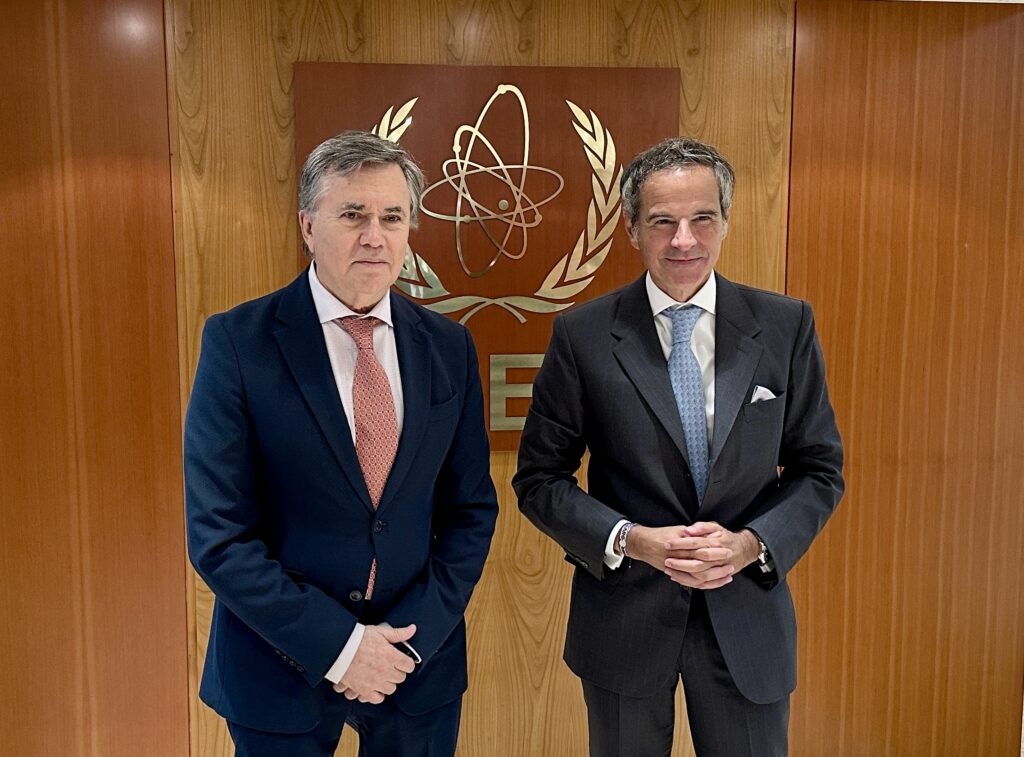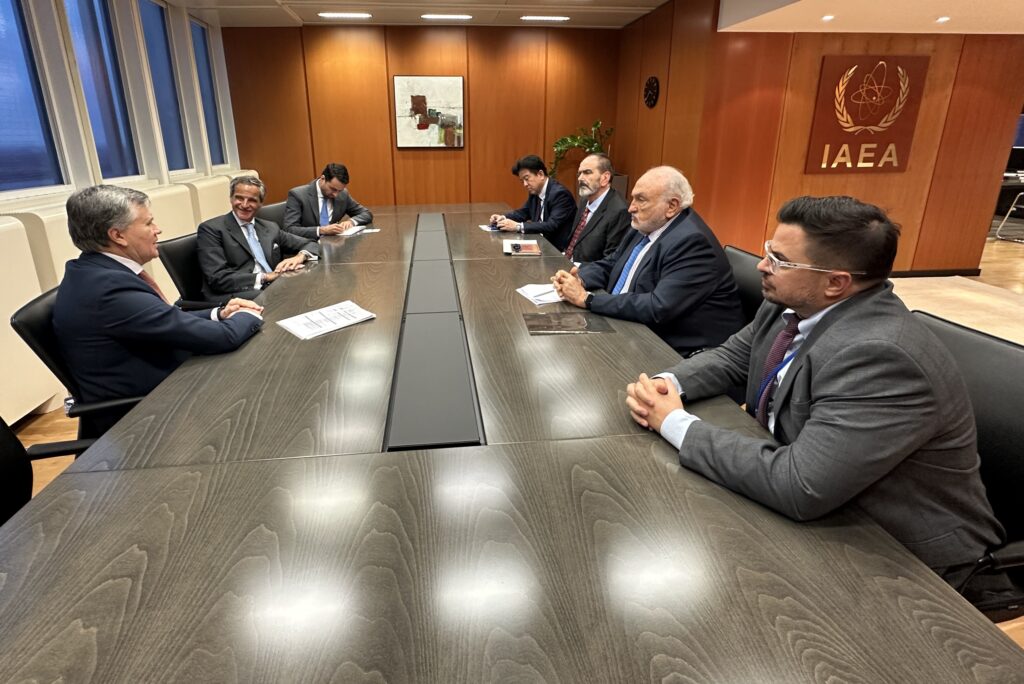
Manuel Otero, Director General of IICA and Rafael Grossi, Director General of the IAEA.
Vienna, 14 January 2025 (IICA) – The International Atomic Energy Agency (IAEA) and the Inter-American Institute for Cooperation on Agriculture (IICA) will expand their partnership to work together to apply nuclear technologies to agriculture. The first concrete step will be a project aimed at preventing and controlling screwworm in cattle.
Rafael Grossi, IAEA Director General, welcomed his colleague Manuel Otero from IICA to the agency’s headquarters in Vienna, where they signed a memorandum of understanding to implement multiple joint initiatives in the areas of food security, water and soil management, pest and disease control and animal health.
In the case of the screwworm, which will be the focus of a shared project, both IICA and the IAEA are already working in Latin American and Caribbean to combat this disease, which is causing serious harm to meat and milk production and to the farmers’ income.
Grossi and Otero stressed the importance of synergy among international organizations, including national authorities and the private sector, as the only way to tackle the challenges of food security that today top the global agenda.
“I am extremely pleased to receive the Director General of IICA, whose work in support of food security in the Americas is invaluable. We signed an agreement that will strengthen the cooperation we already have to disseminate nuclear technologies that have a positive impact on agriculture and the welfare of rural communities. We will work on specific initiatives and our hope is that our collaboration with IICA will grow and produce positive results,” stated Grossi, an Argentine diplomat with over 40 years of experience. Since 2019, he has led the agency of the United Nations family whose mission is to stimulate the contribution of nuclear development to global peace.
Grossi and Otero are the two directors general of international agencies that hail from Argentina.
“IICA’s territorial presence in the Americas and their technical knowledge are fundamental in strengthening the arrival and application on the continent of nuclear science to help control pests in agriculture and livestock. IICA is also a key ally in ensuring the technical projects have greater political impact,” added Grossi.
Nuclear science has been used successfully around the world for over 50 years to combat pests that impact agricultural and animal production. Techniques have been developed that offer sustainable, cost-effective, and environmentally friendly insect control.
For example, the sterile insect technique (SIT) uses radiation to sterilize male flies that are mass-bred and then released into a target area, where they mate with wild female flies. As a result, these flies do not breed and, over time, the wild fly population decreases.
Nuclear techniques have also been used in various parts of the world to effectively diagnose and monitor viruses and prevent them from becoming epidemics.
At the meeting with Grossi, Otero was accompanied by his Special Advisor, Jorge Werthein, and by IICA’s Agricultural Health, Safety and Agrifood Quality Program Manager, José Urdaz.
The Director General of IAEA, in turn, participated alongside his Senior Advisor, Diego Candano Laris, and Luis Carlos Longoria Gándara from the agency’s division for Latin America and the Caribbean.

The meeting highlighted the importance of synergy between international organizations, which also includes national authorities and the private sector, as the only way to address the challenges of food security, which are currently at the top of the global agenda.
Diseases and climate change
As for Otero, he highlighted the importance of nuclear science and technology in combating pests and diseases that were believed to be eradicated but have reappeared due to climate change and once again limit productivity.
IICA’s Director General—who perceives agriculture as an essential activity for peace—underscored that the joint projects aimed at applying nuclear technologies to agriculture are a step toward making the “Atoms of Peace” principle a reality, which has governed the work of the IAEA since its inception in 1957.
“The partnership between IICA and the IAEA that we are strengthening has a concrete objective, which is to work together to address the main challenges and obstacles facing agriculture in the Americas. A key issue is controlling pests that not only affect production but also impact the well-being of farmers,” stated Otero.
“The losses caused by the screwworm are enormous, which has reappeared just like other diseases of the past. It is time to work in coordination with other international agencies and the private sector and to join forces to combat this scourge,” he added.
The IAEA and IICA have been collaborating and exchanging information since at least 2007. The joint work has focused on confronting new challenges related to food health and safety.
One area of cooperation has been the fight against Fusarium Tropical Race 4 (TR4), a disease that seriously threatens global banana production. With IICA’s support, the IAEA trained scientists from six Latin American countries in the use of nuclear and related techniques to detect and contain the fungus, which puts at risk food security and the income of millions of small-scale farmers.
More information:
Institutional Communication Division.
comunicacion.institucional@iica.int











